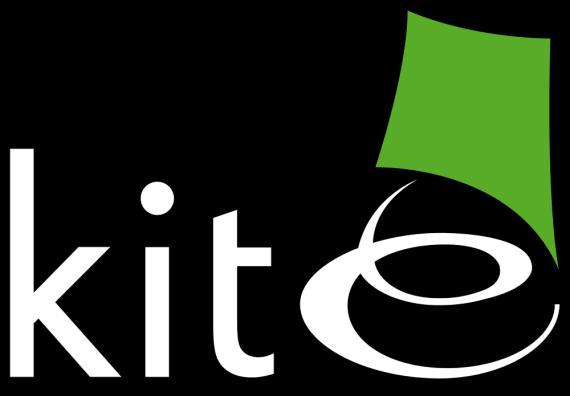




EPR places a responsibility on businesses for the ‘Full Net Cost’ of packaging at end-of-life. There are two types of producers:
From January 2025, companies with a turnover above £1m and who handle 25 tonnes or more of packaging are required to report data for the packaging they have placed on the UK market for the period of 1st January to 31st December 2024.
Since October 2023, companies with a turnover above £2m and who handle 50 tonnes or more of packaging have been required to report data bi-annually for the packaging they have placed on the UK market in the previous calendar year.
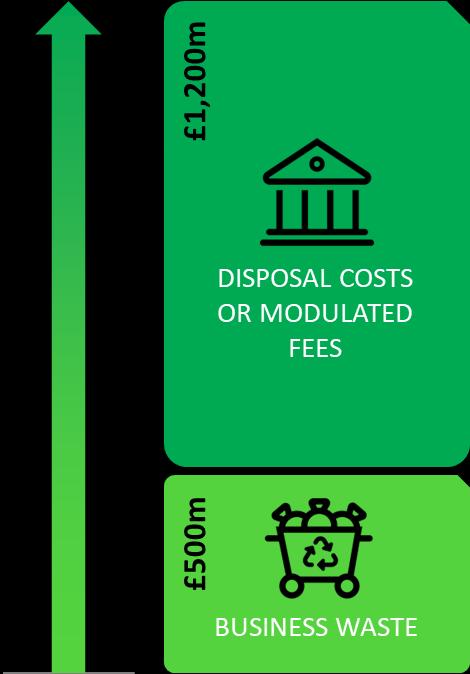

The EPR system has two main cost elements:
• the PRN system covering the cost of recycling; and
• the modulated disposal fees covering the cost of household waste collections.
The modulated disposal fees element is designed to cover the net costs of Local Authorities for the collection of household waste. This is calculated by material type, with difficult-torecycle materials attracting a higher fee.
With the PRN system expected to cost around £500m a year, the disposal costs/modulated fees will add around £1.2bn on top of this.
You will continue to obtain your PRNs through us as your Compliance Scheme, however the modulated disposal costs will be paid directly to the EPR Scheme Administrator, which is a government body.
EPR has moved away from the original ‘shared’ obligations between manufacturers, convertors, packer/fillers, sellers and end users. Instead, it places the whole obligation on just one type of producer.
This impacts your business in the first instance as you need to identify which producer type(s) your business is responsible for and there may be more than one type that applies. This redefining of producer types means the size of your obligation could change significantly.
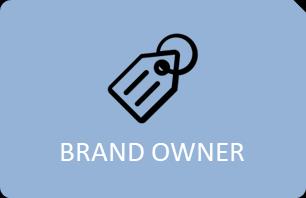
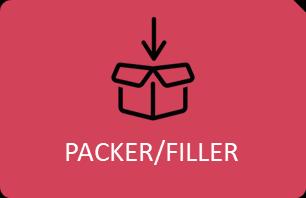
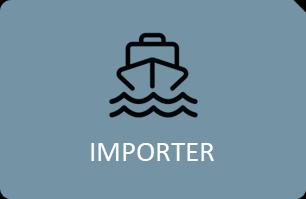
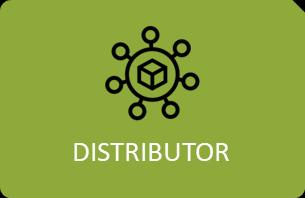


You are a Brand Owner if your company has their name, trademark, logo etc. on an item of FILLED packaging. If a pack is branded with one piece of packaging, you must include all non-branded packaging that forms the pack as well.
A Packer/Filler is a company who packs goods into packaging where there is no brand owner.
An Importer imports FILLED packaging into the UK. This includes:
- Packaging where there is no brand owner;
- Branded, where the brand owner is NOT a Large Producer;
- Branded, but the brand-owner is not involved in the supply.
A Distributor supplies UNFILLED packaging that is:
- Manufactured or Imported by the Distributor;
- Supplied to anyone who is not a Large Producer
- Supplied to a Large Producer that distribute the product on
You are an Online Marketplace if you supply any packaging around goods sold online through a marketplace where:
- In all cases, where the operating company is OUTSIDE of the UK.
- This includes selling unfilled packaging to a business who is not a Large Producer.
A Service Provider relates to any packaging that is leased or rented
The obligation only applies the first time the packaging is used.
The starting point is to determine which producer category your business sits in.
If your turnover is higher than £1m and you handle more than 25 tonnes of obligated packaging then you need to register. If you are unsure, please contact our team for guidance and advice.
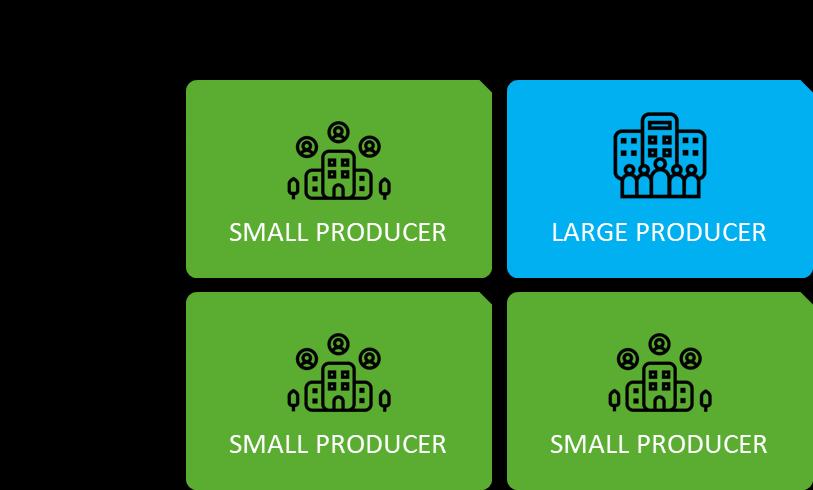
Your business must assess the packaging supplied and has a full obligation. You must report data twice a year and pay fees towards packaging recycling (PRNs) and pay Disposal Modulated Fees if you supply Household packaging.
Your business must assess the packaging supplied and has a reporting only obligation once a year
< £1m turnover or supplying < 25 tonnes
Your business is currently not affected by EPR.
Under EPR companies need to report the type of waste their packaging will become at endof-life. This determines the level of additional modulated disposal fees that a business needs to pay on top of the PRN system.
In data collection terms you need to identify what type of waste the packaging you supply will ultimately become.






By default, all Primary and Shipment packaging will be treated as household packaging unless you can prove you have supplied it to a business who removes it.
By default, this will include all Outer and Transit packaging that will be removed by a business you have directly supplied.
Often referred to as ‘on-the-go’ packaging. This will include packaging around food, drinks and tobacco type products subject to size.
Additional reporting will be required for drinks containers to include the weight and number of units supplied by material.
This refers to all packaging that is designed to be re-used. The obligation will only be picked up on first use.
This applies to any waste you take back from your customers, or collected for recycling.
Packaging is defined as: All products made of any materials of any nature to be used for the containment, protection, handling, delivery and presentation of goods.
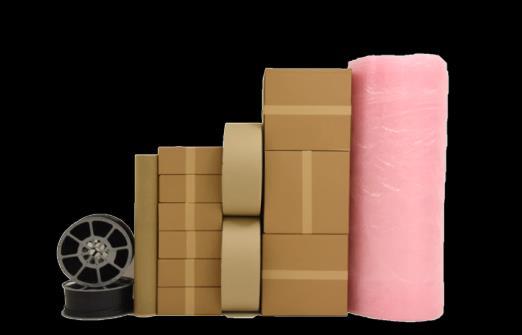




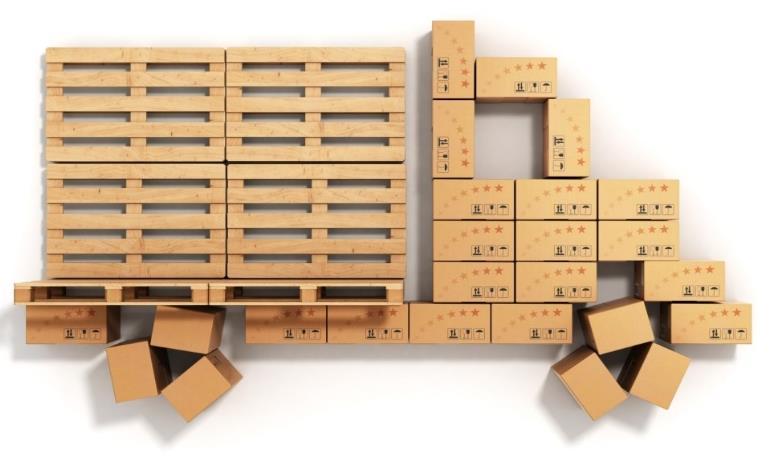
Packaging must be reported by material type. The different packaging material types are:
Each packaging needs to be identified as to whether it is Point of Sale (POS), Outer, Shipment or Transit packaging.
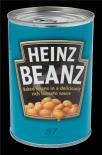

Fibre-based Composites
Other (need to specify)
A fibre-based composite is a packaging material that is made of paperboard or paper fibres laminated with plastic and/or other laminated materials. The nature of the packaging unit means each material cannot be separated by hand.

A common example of fibre-based composite packaging is a disposable coffee cup.

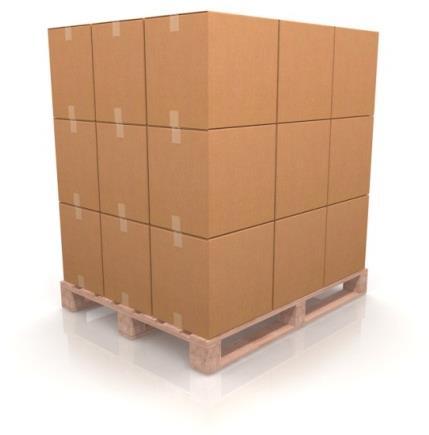
Primary (POS)
Packaging around a sales unit
Secondary (Outer)
Packaging grouping a number of sales units
Shipment (New)
Secondary or tertiary packaging intended to be supplied to household customers
Tertiary (Transit)
Packaging to facilitate handling and transport of a number of sales units or outer packages
‘Report Packaging Data’ (RPD) is the Government’s registration portal for EPR.
Obligated producers must register on the RPD portal and input their company details. As part of this process, you need to select Kite Environmental Solutions as your Packaging Compliance Scheme.
As your Compliance Scheme we will then be able to submit your data.

For any business that removes packaging around imported goods, or supplies it to end user of that packaging, they will have to report how much packaging they have placed on market by nation.
By nation means whether the end consumer is in England, Scotland, Wales or Northern Ireland. Businesses will need to report this information for the calendar year 2024 by 1st December 2025.
When thinking about your data assessments for EPR , it is important to consider what information you will need in order to meet the data reporting requirements.
The checklist below gives you a starting point and we will work with you to ensure that you have what you need to register and report EPR data.

Which producer activities relate to your business?
(brand owner, packer/filler, importer, distributor, online marketplace or service provider)
Are you a Small or Large Producer?
(turnover in last audited accounts on Companies House and weight of packaging supplied / placed onto the UK market)
What waste types will the packaging you supply become?
(Household, non-household, street bin, drinks containers, re-useable or self-managed waste)
Record packaging weights in (kg) by material type
(Paper, Glass, Aluminium, Steel, Plastic, Wood, Fibre-based Composite or Other. e.g. 12kg )
Record the packaging type
(Primary, Secondary, Shipment or Tertiary)
Identify where your customers are by UK nation
(England, Scotland, Wales or Northern Ireland)
EPR can cost many businesses a significant amount of money, with the modulated disposal fees adding a considerable cost for any packaging classed as household on top of the cost of PRNs.
This combined with new Producers picking up 100% of the obligation, means there is a real incentive for businesses to review the packaging they are using.

Initial estimates from the government suggest modulated disposal costs will be roughly between £100 and £600 per tonne of household packaging reported.
The exact fees will vary year on year and between different material types.
It is therefore in the interest of businesses to review the recyclability of the packaging they use and where possible move away from difficult to recycle packaging to those that are easy to recycle.
Help and ideas for easy to recycle packaging can be found at kitepackaging.co.uk

Kite has been supporting businesses with their Packaging Data Submissions since 2003. We help by cutting through the complexity to allow you to understand the Regulations and how they affect your business.
Data collection and reporting under EPR has become more complicated and with our knowledge of the Regulations we will work with you to ensure that your data meets the legal requirements.
As part of your membership for EPR submissions, we provide:




We help you to complete your EPR packaging assessments and understand where your business is obligated. Get in touch now for a complimentary telephone or Teams call to determine if you are affected and need to act now.
As more information and updates come from Defra, we will communicate these to you to keep you up-to-date with the latest position.
We create bespoke data management templates and reporting systems according to EPR requirements to help you gather relevant information for the EPR submissions.
We provide a personalised service to help you with collecting the data you need for your submission. This includes a review of the EPR checklist to ensure the data is reported as required under EPR.

